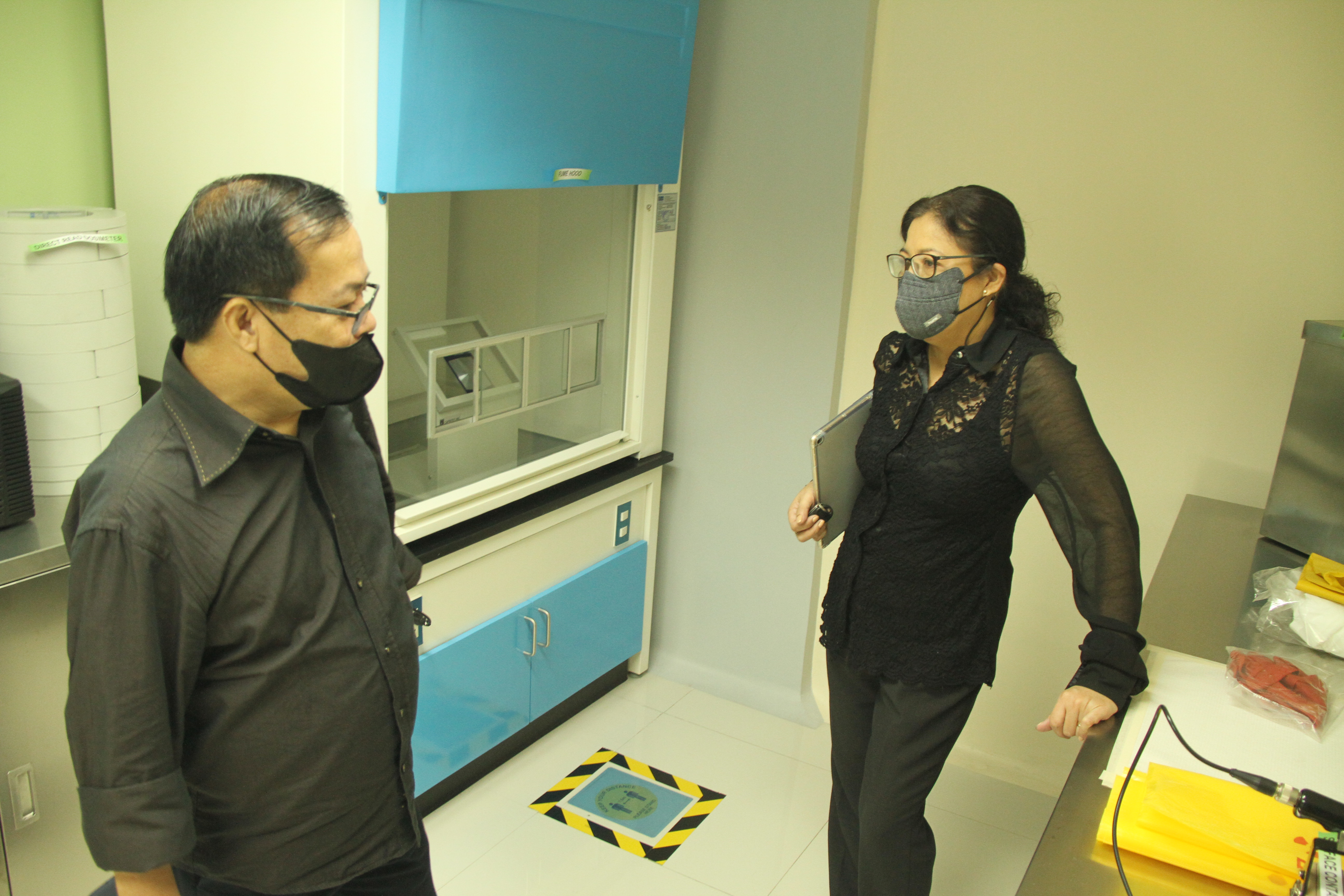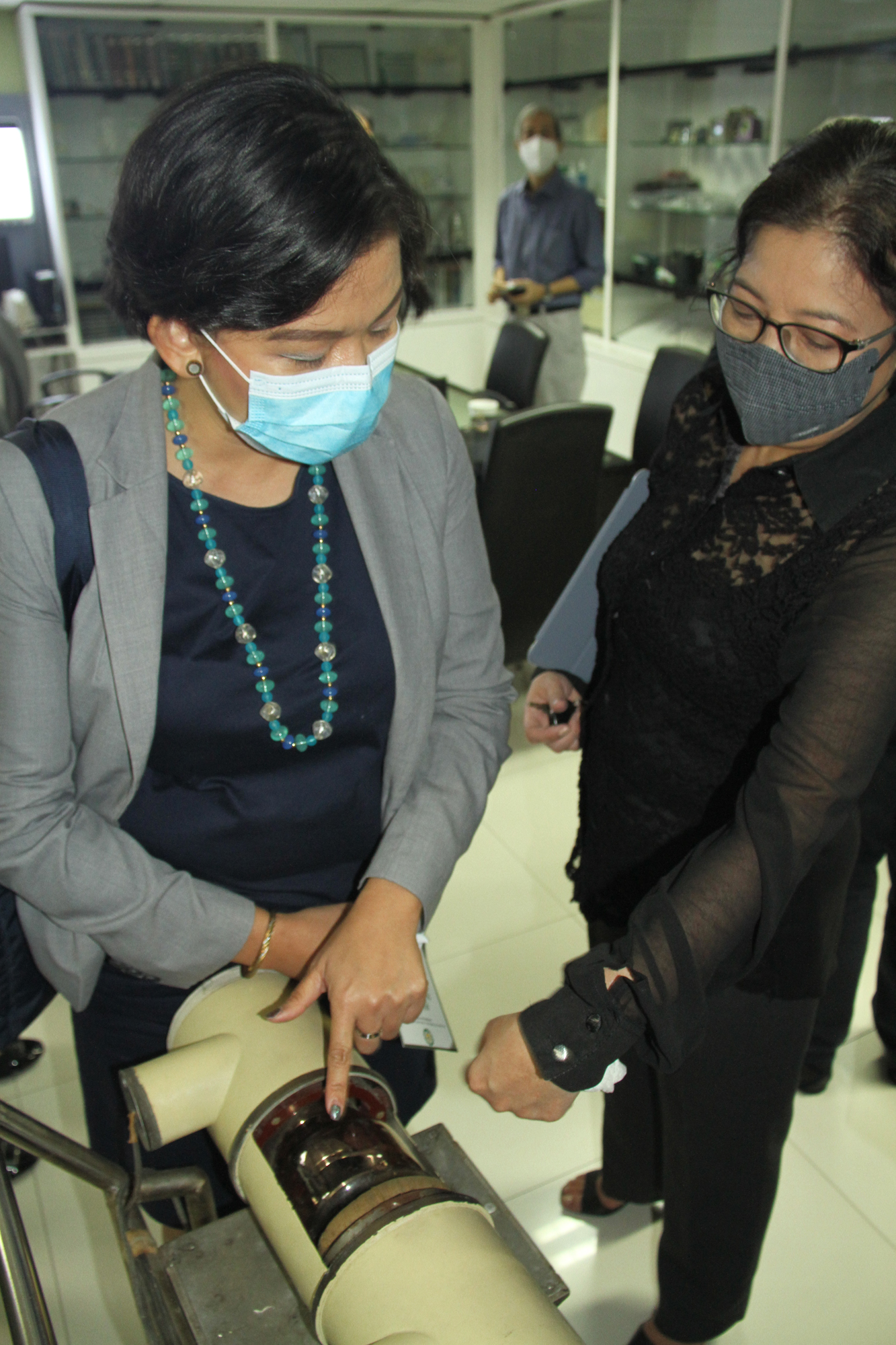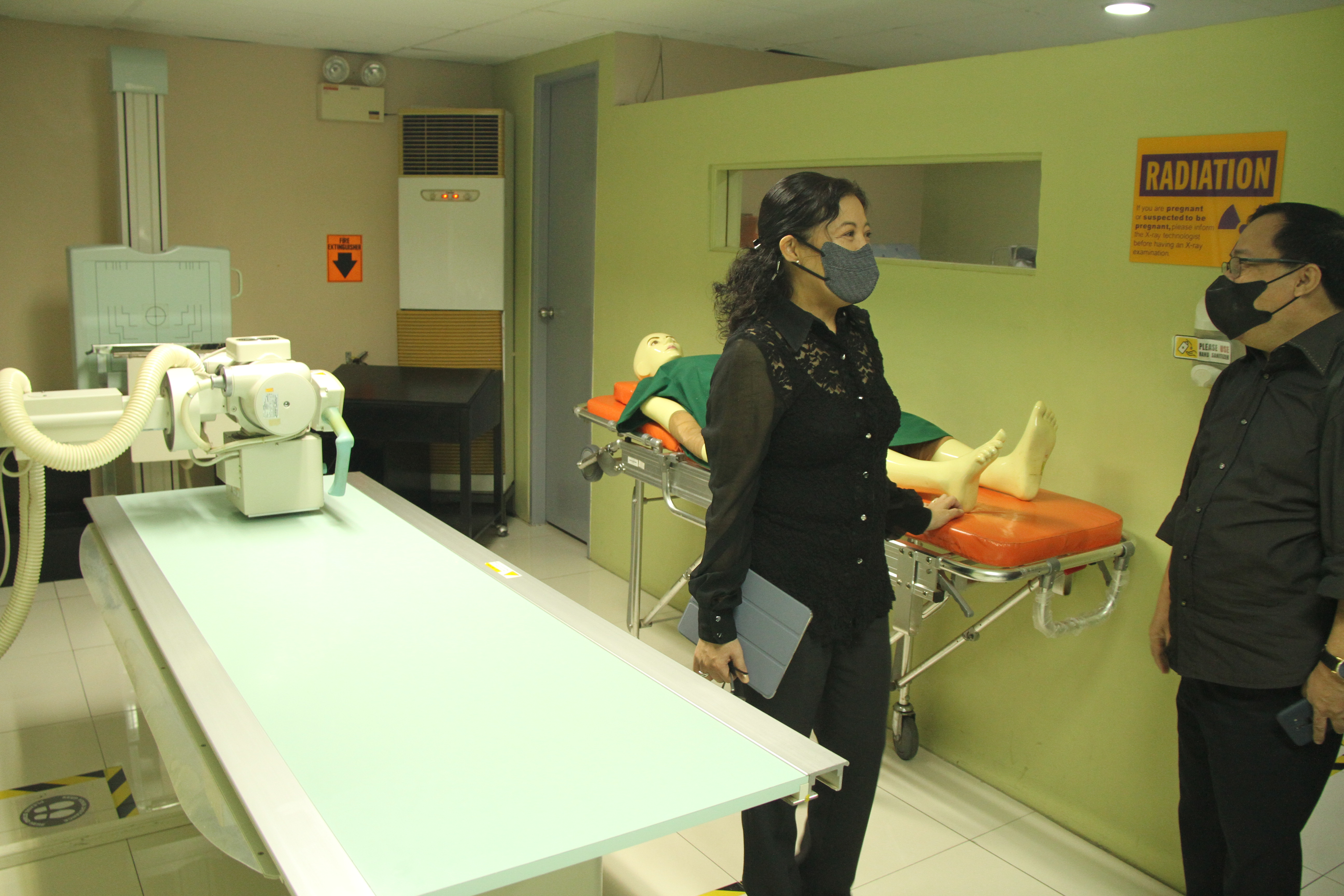
Officials from DOST-Philippine Nuclear Research Institute (DOST-PNRI) and De La Salle Medical and Health Sciences Institute (DLSMHSI) during the inauguration and blessing of the latter’s nuclear medicine laboratories and facilities. From left to right: CMIT Dean Dr. Cheyen Molon, DLSMHSI Vice Chancellor for Academics Dr. Juanito Cabanias, PNRI Deputy Director Dr. Vallerie Samson, Mr. Roel Loteriña and Ms. Christine Singayan of the PNRI Nuclear Training Center, DOST Balik Scientist Dr. Thomas Neil Pascual, BSNMT Program Director Dr. Susan Olavidez, and DLSMHSI Chancellor Dr. Antonio Ramos
PNRI partners with De La Salle for nuclear med degree program
Playing a crucial role in formally bringing nuclear medicine to the academe, the Department of Science and Technology-Philippine Nuclear Research Institute (DOST-PNRI) continues to work with the De La Salle Medical and Health Sciences Institute (DLSMHSI) in the development of its Bachelor of Science in Nuclear Medicine Technology program.
The institute’s College of Medical Imaging and Therapy (CMIT) started to offer the degree program in 2019 with a first batch of 38 students – a leading initiative towards building up university courses in nuclear medicine not only in the Philippines but in the Asia-Pacific region.
“The BS Nuclear Medicine Technology is a pioneering program in the Philippines. For us to offer it first is already a blessing, and although it is quite concerning for parents to enroll their children in an unknown field, our team alongside our college will ensure the quality of education despite being the first,” said CMIT Dean Dr. Cheyen Molon.
Still one of the country’s frontiers in the field of medical imaging, nuclear medicine involves radiopharmaceuticals emitting low doses of radiation, which are used by specialized equipment to produce images of vital organs. These images are necessary for early diagnosis and treatment of various diseases, including cancer and heart problems, among others.
During the inauguration and blessing of its nuclear medicine laboratory and facilities on June 7, college officials highlighted PNRI’s contributions in the program’s establishment from its inception to its continuing improvements.
Program Director Dr. Susan Olavidez traced the program’s roots in November 2016, at a meeting in PNRI with officials from PNRI and the Philippine Society for Nuclear Medicine (PSNM) and representatives from the medical sector. With support from nuclear medicine pioneer Dr. Teofilo San Luis and other practitioners, the program was able to secure the approval of the Commission on Higher Education by late 2018.
“We hope that, in our small way, the [DLSMHSI] will be able to contribute to the manpower needs of nuclear medicine, and that through this program, we have made a mark in the field of nuclear medicine in the Philippines,” said Dr. Olavidez.
Among the major inputs which served as basis for the development of the new nuclear medicine curriculum is the syllabus for PNRI’s Course on Medical Use of Radioisotopes regularly conducted by its Nuclear Training Center (NTC).
Formerly the Radioisotope Techniques Training Course-Medical (RTTC-M), the month-long course is offered to professionals working with radioisotopes in the medical sector, and is a requirement for many hospitals and medical centers.
The NTC is also slated to send PNRI experts as lecturers for various nuclear medicine classes.
PNRI’s Balik Scientist Dr. Thomas Neil Pascual is also among the degree program’s roster of instructors. Formerly an expert on nuclear medicine in the International Atomic Energy Agency, Dr. Pascual is one of latest members of the program’s faculty, and he continues to coordinate with PNRI and the university for the latest developments in the field, as well as for potential international avenues of cooperation.
Also among Dr. Pascual’s ongoing projects is the establishment of a Nuclear Medicine Research and Innovation Center at PNRI. The center will house a medical cyclotron and several state-of-the-art Positron Emission Tomography- Computed Tomography (PET- CT) in one integrated setting, aiming to help lower the cost of diagnosis and treatment of cancer and make it more affordable to the average Filipino.

Dr. Susan Olavides, program director of the BS Nuclear Medicine Technology, shows PNRI officials around some of the facilities and demonstration equipment in their new nuclear medicine laboratory.














































